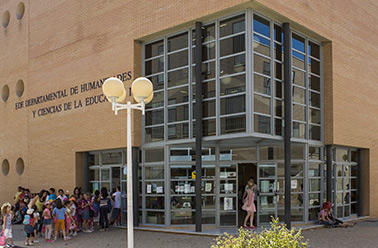Presentation
{{pre.error[0].message}}
Important:
- Document to help you register.
Attention: information on the semester (4th year).
For more information on the temporary distribution of subjects in the 4th year of the Bachelor's Degree in Primary Education, follow this link.
Primary Education attends to the educative process that covers the vital period beginning at 6 years of age and ending at 12. During this period, the cognitive, social, motor and affective development of girls and boys occur, shaping their personality and acquiring the particular form of thought that helps them interpret and understand the world in which they live.
These teachings, which lead to the awarding of the Bachelor's Degree in Primary Education, must cover the principles set forth in the Constitution and provide training oriented to the teaching activity at the basic compulsory levels of the education system, by providing all children with an education that allows them to strengthen their personal development and well-being, to acquire basic cultural skills related to oral expression and compression, reading, writing and calculation, as well as developing social skills, work and study habits, an artistic sense, creativity and affectivity.
The bachelor's degree programme we offer addresses the specialization required of the professionals in charge of this task, who will be experts in education throughout the period from 6 to 12 years, providing future teachers with flexible skills that can be adapted to the real needs of their students (ethnic, cultural and linguistic diversity).
Likewise, graduates of this degree will be able to identify the distinct starting points and different educational and developmental needs of each girl and boy, and adapt to the different individual rhythms, contributing tailored help to each one.

Suggested profile for newly enrolled students
The required profile is that of a student who is concerned about educational issues, is critical and analytical to school situations and the school environment. In addition, the student will be aware from the beginning that the Bachelor's Degree to be accessed requires active participation in the teaching proposals, since at the end of the learning process, he/she will have to be the motivator and promoter of learning in the Primary Education classroom.
General data
Branch of knowledge:
{{pre.presentacion[0].nom_rama}}
Duration of the program:
{{pre.presentacion[0].n_creditos}} Credits / {{pre.presentacion[0].n_duracion}} years
Type of education
{{pre.otros_datos[0].tip_ensenanza}}
Language(s) used
Field of study:
{{pre.presentacion[0].nomambito}}
ISCED:
{{pre.presentacion[0].c_campos_estudio}}
{{pre.presentacion[0].c_campo_estudio_2}}
Coordination
Telephone: {{coo.coordinador[0].tlfcoo | trim}}
E-mail: {{coo.coordinador[0].emailcoo}}
E-mail: {{c.cen_email}}








